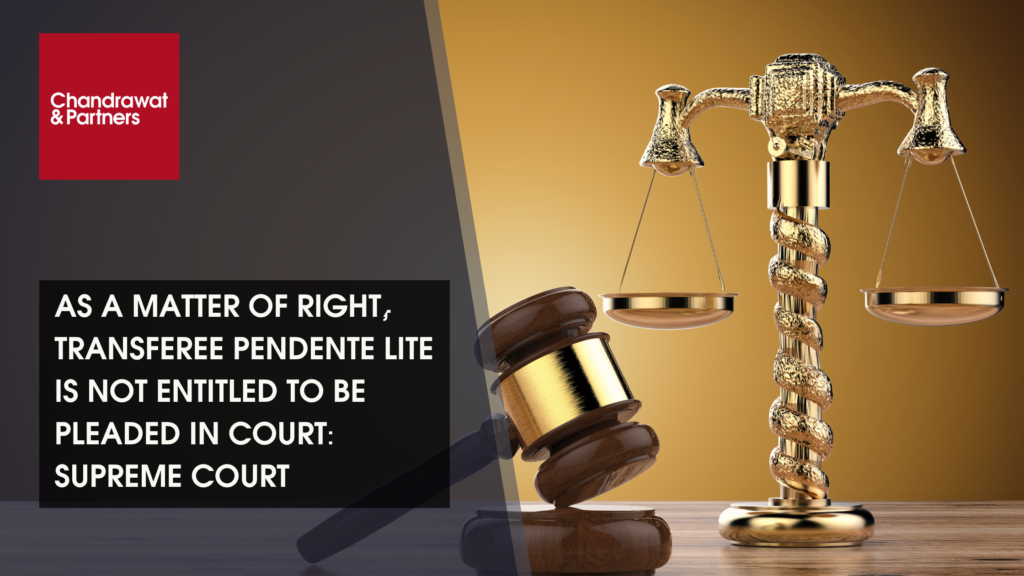Home > Recent Judgements > As A Matter Of Right, Transferee Pendente Lite Is Not Entitled To Be Pleaded In Court: Supreme Court
Jan 30, 2025
BACKGROUND
In the case between H. Anjanappa & Ors. Versus A. Prabhakar & Ors., the case involves Respondent Nos. 1 and 2, who purchased a property during the pendency of a suit for specific performance of an agreement to sell. Despite their plea for impleadment being dismissed by the trial court and attaining finality, they later sought leave to appeal against the trial court’s decision ordering the execution of the sale deed in favour of the plaintiff. The Karnataka High Court granted them leave to appeal, considering their claim of being adversely affected and their status as senior citizens living abroad. However, the Supreme Court set aside the High Court’s decision, holding that Respondents Nos. 1 and 2, as pendente lite transferees, had no automatic right to appeal without being impleaded in the suit and failed to demonstrate sufficient grounds to qualify as aggrieved persons.
ISSUES
- Whether a pendente lite transferee has an automatic right to be impleaded in a suit during the pendency of litigation?
- Whether the High Court erred in granting leave to appeal to Respondent Nos. 1 and 2, who were not impleaded in the suit and whose plea for implement was rejected and attained finality?
- Whether Respondent Nos. 1 and 2, as pendente lite transferees, could be considered “aggrieved persons” entitled to file an appeal against the trial court’s decision?
- Whether the transfer of the suit property during the pendency of the litigation was governed by Section 52 of the Transfer of Property Act, 1882, and whether Respondent Nos. 1 and 2 were bound by the trial court’s judgment?
JUDGMENT
The Supreme Court ruled that a pendente lite transferee, someone who purchases a suit property during the pendency of litigation, has no automatic right to be impleaded in a suit or appeal against a decree unless they demonstrate that their rights or interests are adversely affected or jeopardized. It held that the Karnataka High Court erred in granting leave to appeal to Respondent Nos. 1 and 2, who were pendente lite transferees, despite their impleadment plea being dismissed and attaining finality. The Court emphasized that under Section 52 of the Transfer of Property Act, 1882, pendente lite transfers are subject to the suit’s outcome, and since the trial court’s decision did not legally expose Respondents Nos. 1 and 2’s rights, they could not claim to be aggrieved parties. It directed that any claims of cheating or fraud by the transferees against the original owner must be pursued through separate legal remedies, thereby allowing the appeal of the plaintiff, and setting aside the High Court’s decision.
OBSERVATION
The Supreme Court observed that pendente lite transferees, under Section 52 of the Transfer of Property Act, 1882, acquire property subject to the outcome of the pending litigation and do not have an automatic right to be impleaded in the suit or to appeal against a decree. It held that Respondent Nos. 1 and 2, as pendente lite transferees whose impleadment plea was dismissed and attained finality, failed to establish themselves as “aggrieved persons” with legal rights adversely affected by the trial court’s judgment. The Court noted that the High Court erred in granting them leave to appeal and clarified that any allegations of fraud or cheating must be addressed through separate legal proceedings, reinforcing that their rights were not jeopardized by the trial court’s order.
For more information or queries, please email us at
enquiries@chandrawatpartners.com





